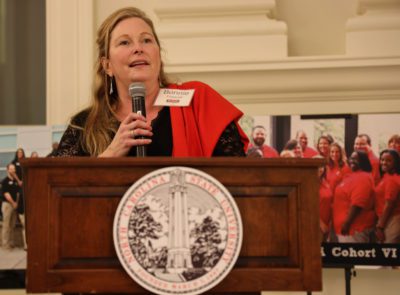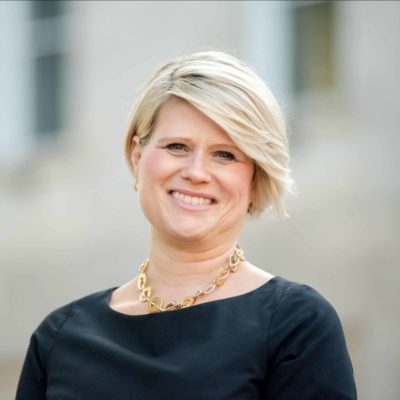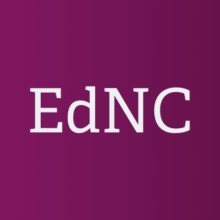The following is a press release from myFutureNC
Raleigh, NC, November 28, 2018- North Carolinians believe increased educational opportunity will help them and their state get ahead, but are concerned about cost and equal access for all.
These are among the findings of the first-ever Gallup/myFutureNC survey measuring North Carolinians’ attitudes toward education. As part of the myFutureNC Commission’s effort to set a statewide goal for postsecondary attainment, the survey of nearly 3,500 North Carolina residents measured opinions and perceptions about all levels of education in North Carolina, from early childhood to K-12 schools, and from two-year community colleges to four-year public and private colleges and universities.
Contrary to national headlines and polling results that describe rising skepticism in the value of higher education, the Gallup/myFutureNC survey found that North Carolinians continue to believe that education beyond high school is a path to a better life and are in favor of increasing educational opportunity.
“Sixty-four percent of North Carolinians believe it is important to increase the number of adults who complete a degree or certificate after high school. As employers, we couldn’t agree more, and that’s why the work of the myFutureNC Commission is so important,” said Co-Chair Andrea Smith, CAO of Bank of America. Co-Chair Dale Jenkins, CEO of Medical Mutual Holdings added, “In January, the commission will issue an ambitious statewide attainment goal along with recommendations on how the goal can be achieved.”
North Carolinians believe that educational options will lead to a better life for them and their families. Sixty-five percent of North Carolinians believe that “people like me can get ahead by getting more education,” and 70 percent agree that “having education beyond high school, including a college degree or professional certificate, is essential for getting a good job.”
However, more than half (53 percent) disagree that all North Carolinians receive the same quality of education, regardless of income or race. Forty percent are dissatisfied with the affordability of four-year public colleges and universities and sixty percent are dissatisfied with the affordability of private colleges and universities.
“We’re pleased but not satisfied with what this poll shows. It’s clear we have the ingredients to build a college-going culture in all 100 counties, as North Carolinians see college as a path that works for them,“ said Commission co-chair and UNC System President Margaret Spellings. “But to finish the job and provide all North Carolinians the opportunity they deserve, we must tackle our most pressing issues of equity and cost.”
Views from the across the state
“We are pleased to see that North Carolinians hold our community colleges in high esteem,” said Peter Hans, President of the NC Community College System. “We also know there are areas where we must continue to improve. That’s why North Carolina’s community colleges are striving to simplify processes and better align with our education partners to accelerate student completion of workforce credentials. We are proud to be a full partner with the myFutureNC Commission and the important work they are doing on behalf of all North Carolinians.”
“North Carolina has long been a higher education model for the country with outstanding private and public sectors. The results of the Gallup poll confirm the public’s confidence in our higher education continuum but it also highlights concerns about the overall cost and, therefore, access to college,” said Hope Williams, President of the NC Independent Colleges and Universities. “We look forward to continuing to work with the myFutureNC Commission and our elected officials to help address these concerns and to strengthen choice and opportunity as a means of increasing the educational attainment of our citizens across the state.”
“These poll results reaffirm the fact that quality education is a top priority for North Carolinians,” said Mark Johnson, State Superintendent of Public Instruction. “We need to make sure all of our students are well-equipped for the 21st Century jobs that are coming to North Carolina. That goal is vital to the future of our state.”
Survey findings include:
Perceptions of Importance of Expanding Educational Options
94 percent of North Carolinians say it is important for adults in NC to have education beyond high school, including a professional certificate or degree.
64 percent agree it is important to increase the number of adults who complete a college degree.
Perceptions of Education’s Impact on Job Market
70 percent agree that having education beyond high school, including a college degree or professional certificate, is essential for getting a good job and 81 percent agree that a good job is essential to having a high quality of life.
89 percent of North Carolinians think NC public schools should offer more classes that teach job and career-related skills.
46 percent think that completing a four-year degree is the best path to a good job for students graduating from high school, while 24 percent think that completing a two-year degree is the best path. 7 percent say going directly to work is the best path, while 23 percent say completing a professional certification.
86 percent say that NC employers value a community college degree some or a lot.
65 percent say that NC Employers value a four-year college degree “a lot” and 30 percent say “some.”
Perceptions of Long-Term Impact of Education
50 percent say that pre-school has “a lot” of impact on the long-term success of students in school and in life.
40 percent say that a two year community college education has “a lot” of impact on the long-term success of students in life, while 51 percent believe it has “some” impact.
64 percent say a four-year education has a lot of impact on long-term success of students, while 31 percent believe it has “some” impact.
Perceptions of Equity, Barriers and Cost
65 percent agree that people like them can get ahead by getting more education.
Only 24 percent agree that all students in NC receive the same quality of education regardless of their background (e.g. income or race) and 53 percent disagree that all students receive the same quality of education regardless of background.
43 percent agree while only 27 percent disagree that there are affordable education options beyond high school for working adults in NC.
35 percent think NC is doing worse than other states in the quality of education it offers its residents while only 17 percent think NC is doing better than other states.
46 percent agree that a four-year college degree is worth the cost and 22 percent disagree it is worth the cost.
54 percent believe that education beyond high school is available to anyone in NC who wants it.
24 percent of North Carolinians are satisfied with the affordability of pre-schools in their area while 37 percent are dissatisfied.
48 percent are satisfied with the affordability of two-year community colleges in their area while 21 percent are dissatisfied.
26 percent of North Carolinians are satisfied with the affordability of four-year public colleges and universities in their area while 41 percent are dissatisfied; 14 percent of North Carolinians are satisfied with the affordability of four-year private colleges and universities in their area while 60 percent are dissatisfied.
77 percent agree that community college is a good place to get started on a four-year college degree in NC.
More information on the Gallup/myFutureNC survey
Mail survey from July 31-September 6, 2018. 22,000 mail surveys sent with an oversample of Hispanic/Latino households. Core analyses based on 3,456 North Carolina respondents. For results based on the total sample size of 3,456 adults, one can say with 95% confidence that the margin of error attributable to sampling and other random effects is +/- 2.3 percentage points. The full survey can be found at https://www.myfuturenc.org/resources/
More information on myFutureNC Commission
The myFutureNC Commission brings together North Carolina leaders in education, business, nonprofit, faith-based and policy communities to develop a bold goal for educational attainment and a cross-sector commitment to improving pathways from pre-school through postsecondary education into the workforce. The Commission has conducted nine listening sessions all across the state, created multiple policy briefs and fact sheets, convened five full Commission meetings and enlisted experts on P12, Postsecondary and Workforce development, with the goal of building a comprehensive attainment plan that serves all North Carolina students.
The effort is led by a team of Co-Chairs: Dale Jenkins, CEO of Medical Mutual Holdings; Andrea Smith, Chief Administrative Officer of Bank of America; and Margaret Spellings, President of the University of North Carolina System. The Commission’s work is underwritten by grants from the John M. Belk Endowment, the Bill and Melinda Gates Foundation and the Goodnight Education Foundation.
For more information visit https://www.myfuturenc.org/
Deputy Director/Press Contact:
Matthew Chamberlin matthew.c@myfuturenc.org (786) 295-5338
Recommended reading



